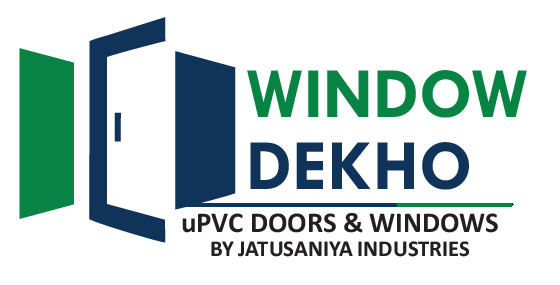Harnessing Energy Efficiency: The Benefits of uPVC Windows for a Sustainable Home
Energy efficiency plays a crucial role in the quest for a more sustainable future. As homeowners seek ways to reduce energy consumption and create comfortable living spaces, uPVC (unplasticized polyvinyl chloride) windows emerge as an eco-friendly and energy-efficient solution. This blog will delve into the benefits of uPVC windows for energy efficiency, highlighting their ability to reduce heat loss, improve insulation, and contribute to a more sustainable and comfortable home.
- Thermal Insulation:
One of the primary advantages of uPVC windows is their excellent thermal insulation properties. The uPVC material, combined with advanced design features, creates a thermal barrier that minimizes heat transfer between the inside and outside of your home. This insulation helps maintain a stable indoor temperature, reducing the reliance on heating and cooling systems throughout the year. - Reduced Heat Loss:
Traditional windows, especially single-pane glass ones, are prone to heat loss. uPVC windows, on the other hand, feature double or triple-glazing options that include insulating air or gas-filled chambers between the glass panes. This design significantly reduces heat loss, ensuring that the warmth generated inside your home remains trapped indoors, even in colder climates. - Energy Savings:
By minimizing heat loss, uPVC windows contribute to significant energy savings. Homeowners can experience lower energy consumption and utility bills with reduced dependence on heating systems during winter. Similarly, during hot summers, uPVC windows with proper glazing can prevent excess heat from entering the home, reducing the need for air conditioning and saving energy costs. - Enhanced Insulation:
In addition to their glazing properties, uPVC windows provide enhanced insulation through features such as multiple weather seals and specialized frame designs. These elements create a tight seal, preventing drafts, air leakage, and moisture infiltration. The result is a more comfortable and energy-efficient home that remains cozy in winter and cool in summer. - Condensation Control:
Condensation can be a common issue with windows, leading to moisture damage, mold growth, and decreased indoor air quality. uPVC windows offer excellent condensation control due to their superior thermal performance. The thermal barrier created by uPVC prevents cold spots on the glass surface, reducing the likelihood of condensation formation and the associated problems. - Sustainability and Environmental Impact:
Opting for uPVC windows aligns with sustainable living principles. The manufacturing process of uPVC windows requires fewer natural resources and emits fewer greenhouse gases than other window materials. Furthermore, the long lifespan and durability of uPVC windows reduce waste generation and the need for frequent replacements, contributing to a more sustainable and environmentally friendly home.
Conclusion:
uPVC windows provide homeowners various benefits, and their energy efficiency advantages are particularly noteworthy. From reducing heat loss and improving insulation to lowering energy consumption and creating a more sustainable home, uPVC windows significantly impact both comfort and environmental stewardship. Consider upgrading your windows to uPVC to experience the benefits of energy efficiency, cost savings, and more comfortable living space while contributing to a greener future. Consult with WindowDekho to explore options and start your journey toward an energy-efficient and sustainable home.
